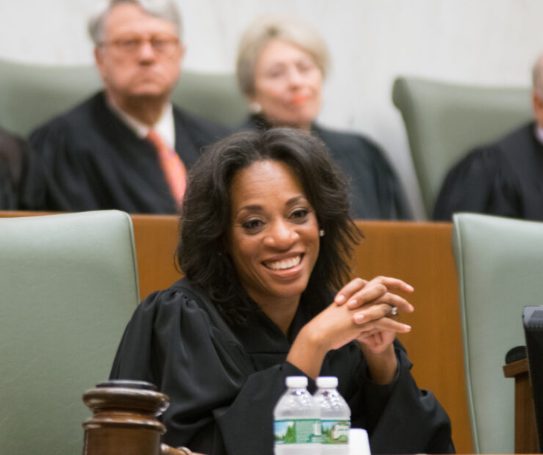Brooklyn court excludes rap lyrics as evidence in Jam Master Jay murder trial

U.S. District Judge LaShann DeArcy Hall ruled against the admission of rap lyrics during the Jam Master Jay trial.
Photo: Rob Abruzzese/Brooklyn Eagle
Photo: Rob Abruzzese/Brooklyn Eagle
It’s tricky to introduce evidence.
U.S. District Judge LaShann DeArcy Hall ruled against the admission of rap music lyrics and videos as evidence on Tuesday in the trial of Karl Jordan Jr., charged with the murder of Jason Mizell, famously known as Jam Master Jay from the legendary hip-hop group Run-DMC.
Judge Hall’s decision meticulously dissected the cultural and historical context of hip-hop, tracing its roots back to the Bronx in the early 1970s, where it emerged not just as a musical genre but as a comprehensive cultural movement.